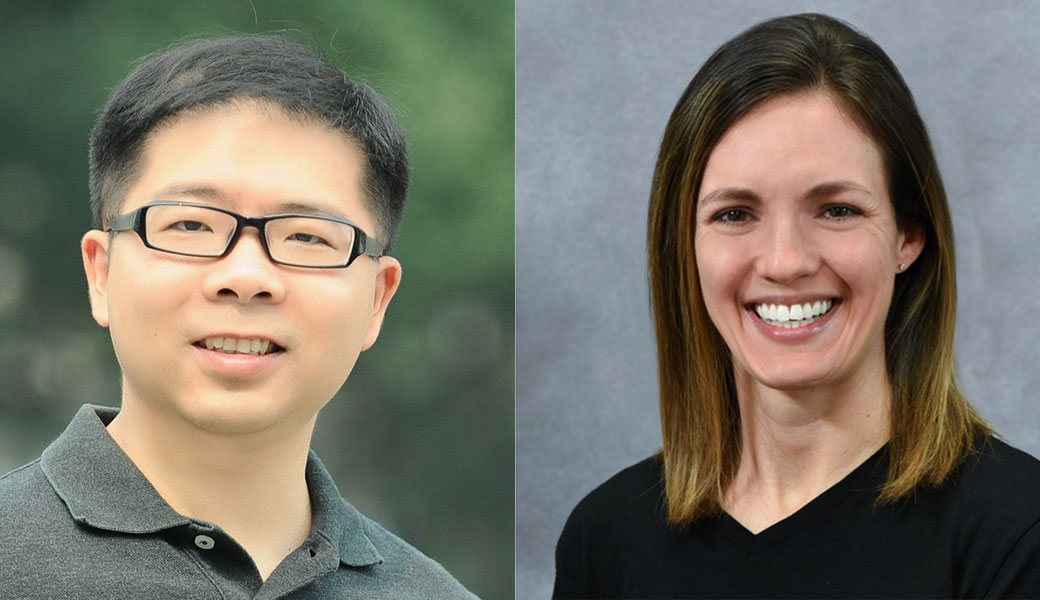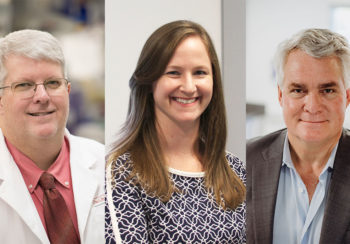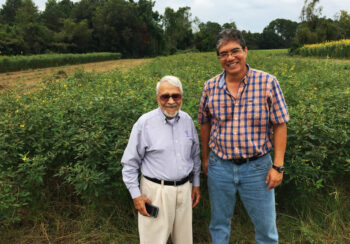A multidisciplinary team of University of Georgia researchers recently received the Georgia Clinical and Translational Science Alliance (CTSA) President’s Award for Team Science, in recognition of their efforts to prevent adverse drug effects in intensive care units.
The President’s Award recognizes and promotes excellence in multidisciplinary research teams across the state. It is presented to teams conducting innovative and impactful research that has, or will likely, advance clinical and translational science to improve human health.
This year’s award went to a team co-led by Andrea Sikora and Ye Shen—associate professors in the colleges of Pharmacy and Public Health, respectively—and human health is at the heart of their project. Every year, over 1.5 million Americans admitted to hospital intensive care units experience a serious adverse drug event. With each event, the risk of death doubles, and associated healthcare costs to treat these events exceeds $1 billion.
The presence of critical care pharmacists can reduce the risk of these adverse drug effects, but such specialists are distributed inequitably throughout the healthcare system.
That’s where the UGA team stepped in. With their wide-ranging set of expertise, the team is exploring artificial intelligence-based technology to provide real-time predictions about adverse drug effects. With critical care pharmacists often hard to come by, the technology could be widely implemented to help guide clinicians in preventing errors.
“We are excited to develop predictive tools incorporating state-of-the-art artificial intelligence and causal inference approaches to better understand adverse drug events in intensive care units,” Shen said.
The team was previously awarded $1.86 million from the Agency for Healthcare Research and Quality, the leading federal agency tasked with improving healthcare quality in the United States, to advance its research. This project was also aided by an early investment from UGA’s Teaming for Interdisciplinary Research Pre-Seed Program, which provides early stage developmental funding to facilitate the formation of faculty teams around critical areas of research expertise.
According to Sikora, teamwork explains the project’s success.
“The concept of team science was first introduced to me during my time as a KL2 Scholar with the Georgia CTSA,” Sikora said. “It was described as ‘essential to success,’ and I want to corroborate that: This team has generated successful funding bids because of the commitment to timely communication and respectful and thought-provoking discussion.”
Other team members include Susan Smith, clinical associate professor in the College of Pharmacy; Mark Ebell, professor in the UGA College of Public Health; and Tainming Liu, Distinguished Research Professor, and Sheng Li, adjunct associate professor, in the School of Computing.






